 Two years before his death, my father gave me a small suitcase filled with his writings, manuscripts and notebooks. Assuming his usual joking, mocking air, he told me he wanted me to read them after he was gone, by which he meant after he died.
Two years before his death, my father gave me a small suitcase filled with his writings, manuscripts and notebooks. Assuming his usual joking, mocking air, he told me he wanted me to read them after he was gone, by which he meant after he died.
‘Just take a look,’ he said, looking slightly embarrassed. ‘See if there’s anything inside that you can use. Maybe after I’m gone you can make a selection and publish it.’
We were in my study, surrounded by books. My father was searching for a place to set down the suitcase, wandering back and forth like a man who wished to rid himself of a painful burden. In the end, he deposited it quietly in an unobtrusive corner. It was a shaming moment that neither of us ever forgot, but once it had passed and we had gone back into our usual roles, taking life lightly, our joking, mocking personas took over and we relaxed. We talked as we always did, about the trivial things of everyday life, and Turkey’s neverending political troubles, and my father’s mostly failed business ventures, without feeling too much sorrow. Читать далее

 I know many of you were convinced last night at about six o’clock local time the world was going to come to an end. Just because it hasn’t doesn’t mean that it’s not nearby because my appearing today at Yale University is surely one of the four horsemen of the apocalypse.
I know many of you were convinced last night at about six o’clock local time the world was going to come to an end. Just because it hasn’t doesn’t mean that it’s not nearby because my appearing today at Yale University is surely one of the four horsemen of the apocalypse.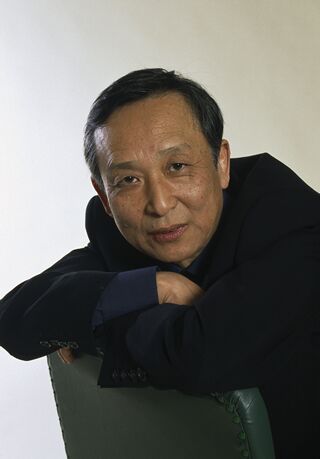 I have no way of knowing whether it was fate that has pushed me onto this dais but as various lucky coincidences have created this opportunity I may as well call it fate. Putting aside discussion of the existence or non-existence of God, I would like to say that despite my being an atheist I have always shown reverence for the unknowable.
I have no way of knowing whether it was fate that has pushed me onto this dais but as various lucky coincidences have created this opportunity I may as well call it fate. Putting aside discussion of the existence or non-existence of God, I would like to say that despite my being an atheist I have always shown reverence for the unknowable.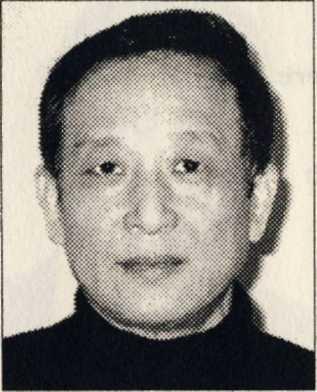 Не знаю, судьба ли меня занесла на эту трибуну, но я не нахожу другого слова, чтобы сказать о счастливых обстоятельствах, которые этому способствовали. Вопрос о существовании Бога я оставляю в стороне. Когда бы мне ни задали этот вопрос, ответ на который мне неизвестен, каждый раз меня переполняет чувство глубокого уважения, несмотря на то, что я всегда считал себя атеистом.
Не знаю, судьба ли меня занесла на эту трибуну, но я не нахожу другого слова, чтобы сказать о счастливых обстоятельствах, которые этому способствовали. Вопрос о существовании Бога я оставляю в стороне. Когда бы мне ни задали этот вопрос, ответ на который мне неизвестен, каждый раз меня переполняет чувство глубокого уважения, несмотря на то, что я всегда считал себя атеистом.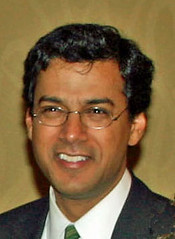 Thank you, graduates and Ohio University, for this opportunity. I am a 1983 graduate of Athens High School. Which means, yes, you invited a townie to give your graduation address. I grew up here watching you, the students, come and go. Perhaps that should make you wonder whether it was foolish to have asked a townie to speak. I’m not sure, after all, how much you want me telling your parents about what I saw as a teenager on Court Street on Halloween nights.
Thank you, graduates and Ohio University, for this opportunity. I am a 1983 graduate of Athens High School. Which means, yes, you invited a townie to give your graduation address. I grew up here watching you, the students, come and go. Perhaps that should make you wonder whether it was foolish to have asked a townie to speak. I’m not sure, after all, how much you want me telling your parents about what I saw as a teenager on Court Street on Halloween nights.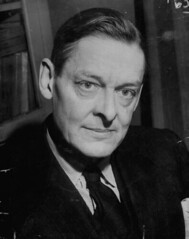 When I began to think of what I should say to you this evening, I wished only to express very simply my appreciation of the high honour which the Swedish Academy has thought fit to confer upon me. But to do this adequately proved no simple task: my business is with words, yet the words were beyond my command. Merely to indicate that I was aware of having received the highest international honour that can be bestowed upon a man of letters, would be only to say what everyone knows already. To profess my own unworthiness would be to cast doubt upon the wisdom of the Academy; to praise the Academy might suggest that I, as a literary critic, approved the recognition given to myself as a poet. May I therefore ask that it be taken for granted, that I experienced, on learning of this award to myself, all the normal emotions of exaltation and vanity that any human being might be expected to feel at such a moment, with enjoyment of the flattery, and exasperation at the inconvenience, of being turned overnight into a public figure? Were the Nobel Award similar in kind to any other award, and merely higher in degree, I might still try to find words of appreciation: but since it is different in kind from any other, the expression of one’s feelings calls for resources which language cannot supply.
When I began to think of what I should say to you this evening, I wished only to express very simply my appreciation of the high honour which the Swedish Academy has thought fit to confer upon me. But to do this adequately proved no simple task: my business is with words, yet the words were beyond my command. Merely to indicate that I was aware of having received the highest international honour that can be bestowed upon a man of letters, would be only to say what everyone knows already. To profess my own unworthiness would be to cast doubt upon the wisdom of the Academy; to praise the Academy might suggest that I, as a literary critic, approved the recognition given to myself as a poet. May I therefore ask that it be taken for granted, that I experienced, on learning of this award to myself, all the normal emotions of exaltation and vanity that any human being might be expected to feel at such a moment, with enjoyment of the flattery, and exasperation at the inconvenience, of being turned overnight into a public figure? Were the Nobel Award similar in kind to any other award, and merely higher in degree, I might still try to find words of appreciation: but since it is different in kind from any other, the expression of one’s feelings calls for resources which language cannot supply. I am standing in a doorway looking through clouds of blowing dust to where I am told there is still uncut forest. Yesterday I drove through miles of stumps, and charred remains of fires where, in ’56, there was the most wonderful forest I have ever seen, all now destroyed. People have to eat. They have to get fuel for fires.
I am standing in a doorway looking through clouds of blowing dust to where I am told there is still uncut forest. Yesterday I drove through miles of stumps, and charred remains of fires where, in ’56, there was the most wonderful forest I have ever seen, all now destroyed. People have to eat. They have to get fuel for fires.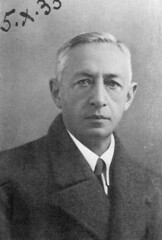 On November ninth, very far from here in a poor country house in an old Provencal town, I received the telephone call that informed me of the choice of the Swedish Academy. I would not be honest if I told you, as one does in such cases, that it was the profoundest emotional moment of my life. A great philosopher has said that even the most vehement feelings of joy hardly count in comparison with those which provoke sorrow. I do not wish to strike a note of sadness at this dinner, which I shall forever remember, but let me say nonetheless that in the course of the past fifteen years my sorrows have far exceeded my joys. And not all of those sorrows have been personal — far from it. But I can certainly say that in my entire literary life no other event has given me so much legitimate satisfaction as that little technical miracle, the telephone call from Stockholm to Grasse. The prize established by your great countryman, Alfred Nobel, is still the highest reward that can crown the work of a writer. Ambitious like most men and all writers, I was extremely proud to receive that reward at the hands of the most competent and impartial of juries, and be assured, gentlemen of the Academy, I was also extremely grateful.
On November ninth, very far from here in a poor country house in an old Provencal town, I received the telephone call that informed me of the choice of the Swedish Academy. I would not be honest if I told you, as one does in such cases, that it was the profoundest emotional moment of my life. A great philosopher has said that even the most vehement feelings of joy hardly count in comparison with those which provoke sorrow. I do not wish to strike a note of sadness at this dinner, which I shall forever remember, but let me say nonetheless that in the course of the past fifteen years my sorrows have far exceeded my joys. And not all of those sorrows have been personal — far from it. But I can certainly say that in my entire literary life no other event has given me so much legitimate satisfaction as that little technical miracle, the telephone call from Stockholm to Grasse. The prize established by your great countryman, Alfred Nobel, is still the highest reward that can crown the work of a writer. Ambitious like most men and all writers, I was extremely proud to receive that reward at the hands of the most competent and impartial of juries, and be assured, gentlemen of the Academy, I was also extremely grateful. 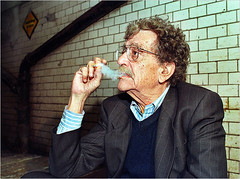 Здравствуйте.
Здравствуйте.